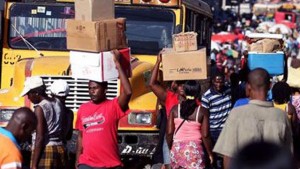 Dominican Republic authorities were preparing on Wednesday to deport thousands of undocumented Haitian migrants and Dominicans of Haitian descent, with a midnight deadline to register for official residency documents.
Dominican Republic authorities were preparing on Wednesday to deport thousands of undocumented Haitian migrants and Dominicans of Haitian descent, with a midnight deadline to register for official residency documents.
“If they aren’t registered, they will be repatriated,” said Gen. Rubén Paulino, who heads the country’s Immigration Department, adding that on Thursday the department and the military will begin patrolling neighborhoods with large immigrant populations.
The decision to proceed with mass deportations has drawn international condemnation and worried Haitian officials who say they have not been told how many deportees to prepare for. Haiti is still reeling from a 2010 earthquake that devastated much of the country, and thousands of repatriations could stretch its resources further.
As scores of mostly Haitian noncitizens — many of which were born in the Dominican Republic and are descendants of Haitians who crossed the border generations ago but never received official documentation — waited for possible repatriation to Haiti, other Dominican officials contradicted Paulino’s statements.
Foreign Affairs Minister Andrés Navarro said the fears of mass deportations were unfounded, news website Dominican Today reported. Interior Minister José Ramón Fadul also said there would be no deportations after the deadline passes. However, Paulino said the Immigration Department has prepared dozens of buses, seven light trucks and two ambulances for the immigration patrols.
The Dominican military said on Monday that various branches and agencies will be increasing security along the country’s border with Haiti to halt the entry of undocumented migrants, Dominican Today reported. It added that army posts on the border — in towns such as Dajabón, Jimaní and Elías Piña — were being turned over to the Immigration Department to house and repatriate noncitizens.
Before the deadline to register as legal residents, hundreds of undocumented immigrants formed long lines outside government offices in the capital, Santo Domingo, and Santiago, to register to legalize their status.
Earlier this week, protests erupted outside the offices as Haitian noncitizens said the immigration process was too slow and that employees in the office of the Interior and the Police ministries were not working fast enough to register them.
The deportations are the latest effort by the Dominican government to reduce the number of Haitians who have entered the country illegally. But it is not only undocumented immigrants who are being targeted for deportation.
Last year the government targeted a different group with Haitian background, rescinding the citizenship of over 200,000 Haitians whose parents were given government permits to work in Dominican fields in past decades. Many subsequent generations of the immigrants were born on Dominican plantations but many did not received proper documentation.
The measure, the result of a 2013 ruling from the country’s top constitutional court, drew international criticism. The Inter-American Court on Human Rights called on the Dominican government to redress the court ruling. The government, however, ignored the request, calling it “inappropriate.”
Since then, anti-Haitian sentiment has been on the rise in Dominican Republic. Earlier this year, a Haitian man in Santiago was likely lynched. Dominicans there, the country’s second-largest city, have burned Haitian flags amid calls for the government to take a stand against the “invasion” of Haitian workers.
Relations between the two countries broke down decades ago, after up to 20,000 Haitians were killed on the order of the Dominican Republic’s then-leader, Rafael Trujillo, in 1937. Haitians had worked Dominican fields for generations, but at the time, they became targets, in part because of the job scarcity that swept through the nation with the Great Depression.
The victims’ bodies were dumped into Massacre River — named after colonial-era killings — which forms part of the border with Haiti. Today a bridge crosses the river at the Dominican town of Dajabón, and a binational market has been set up to improve economic ties between the two countries.
As Haiti continues to recover from the 2010 earthquake, which killed roughly 200,000 people, the market is a lifeline for many Haitians — connecting them to relatively wealthy Dominican buyers looking for good deals on basic goods.
From the Dominican side of the bridge, where buyers speed off in SUVs through military checkpoints meant to stop Haitians from traveling farther into the country, starkly contrasting poverty can be viewed across the river in Haiti, where women wash clothes and dishes in the shallows as children climb a fence separating the nations and beg from passersby.
